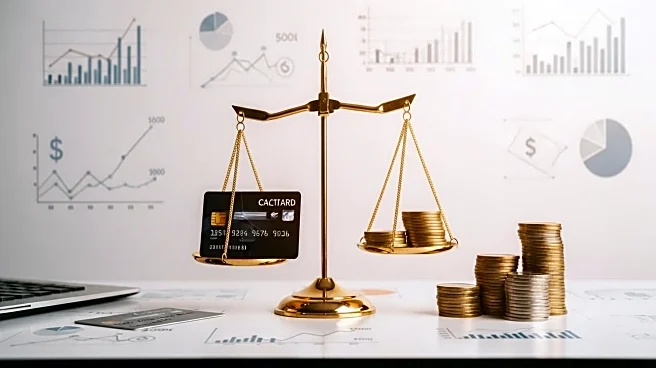What's Happening?
Financial educator Rita-Soledad Fernández Paulino is addressing common misconceptions about credit card debt, emphasizing that being in debt does not necessarily mean poor money management. She highlights that many individuals incur debt due to emergencies or unexpected expenses, such as medical bills or car repairs. Fernández Paulino advocates for a more nuanced understanding of debt, encouraging people to view it as a tool rather than a burden. She stresses the importance of financial education and strategic debt management to improve financial confidence.
Why It's Important?
Fernández Paulino's insights challenge the stigma associated with credit card debt, promoting a more informed approach to personal finance. By reframing debt as a manageable aspect of financial planning, individuals can better navigate their financial situations and reduce stress. Her emphasis on education and strategic use of credit can empower people to make informed decisions, potentially improving their financial health and stability.
What's Next?
Fernández Paulino encourages individuals to develop plans to pay down debt while saving for emergencies. Her approach involves building a surplus to tackle debt effectively, which may include budgeting adjustments or additional income sources. As more people adopt her strategies, there could be a shift in how debt is perceived and managed, leading to improved financial literacy and reduced debt-related anxiety.
Beyond the Headlines
The discussion around credit card debt touches on broader cultural attitudes towards money and financial responsibility. It highlights the need for accessible financial education and the role of societal norms in shaping perceptions of debt and money management.












